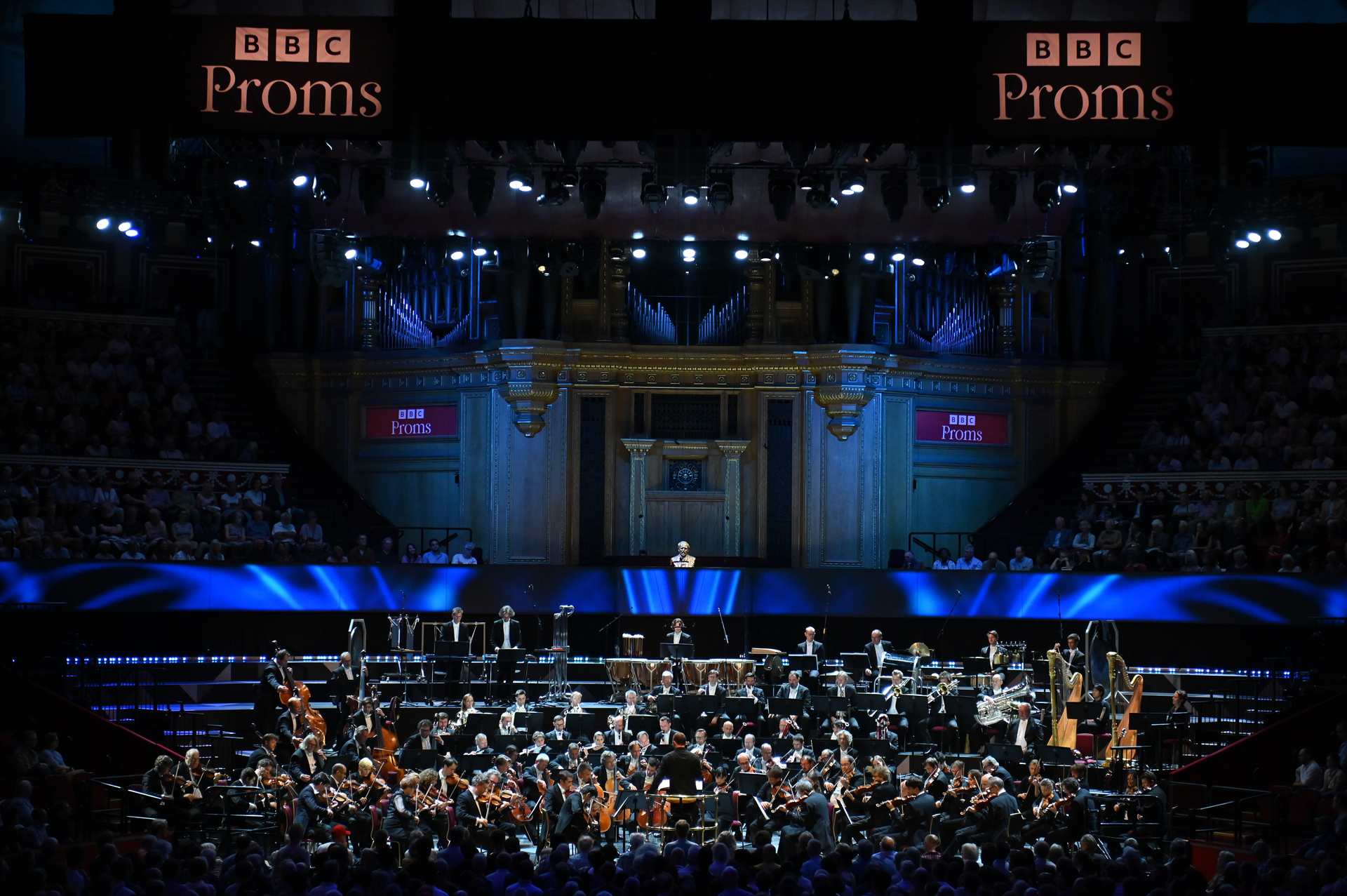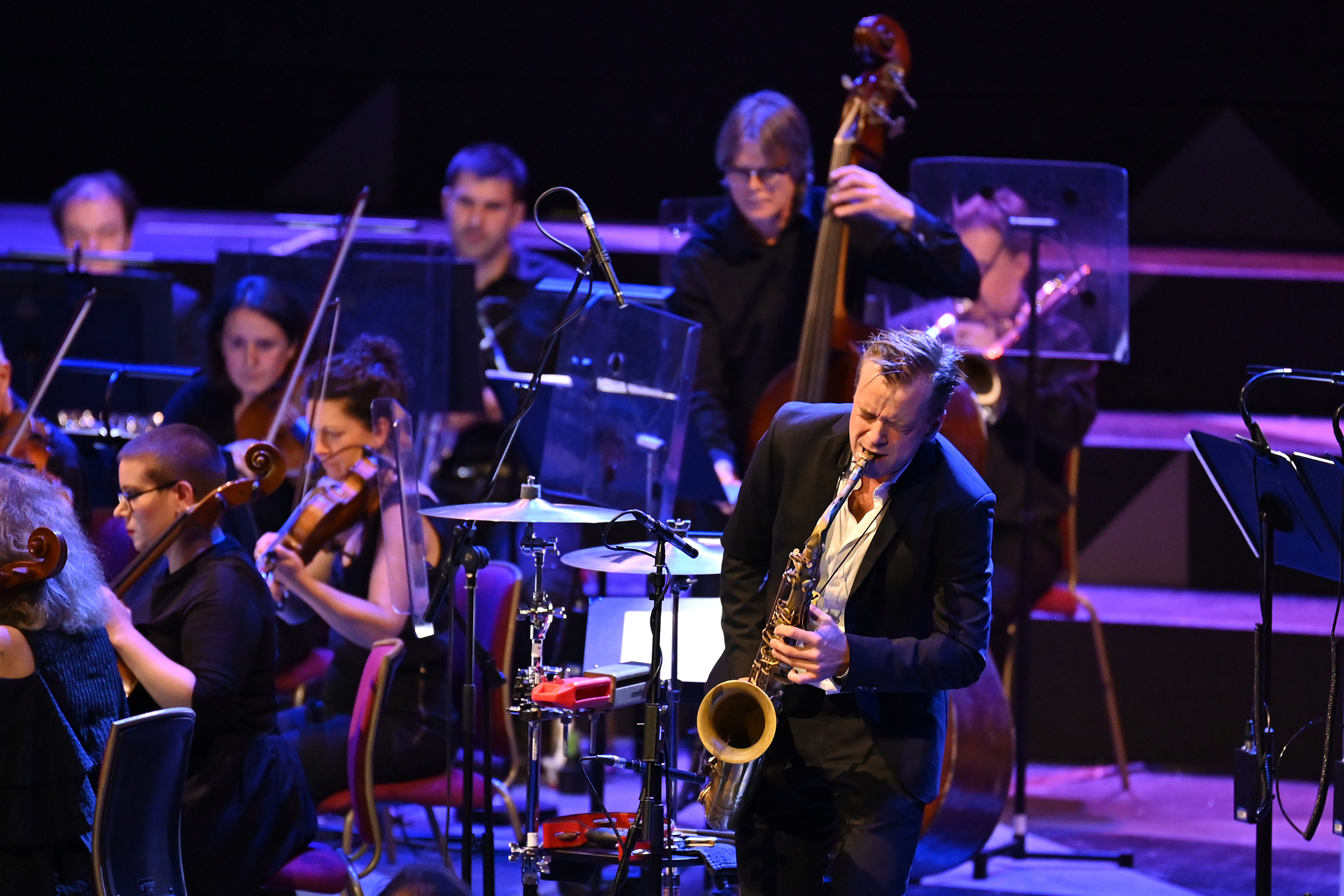Prom 62, Mahler's Seventh Symphony, Berlin Philharmonic, Petrenko review - hallucinogenic night's journey into day | reviews, news & interviews
Prom 62, Mahler's Seventh Symphony, Berlin Philharmonic, Petrenko review - hallucinogenic night's journey into day
Prom 62, Mahler's Seventh Symphony, Berlin Philharmonic, Petrenko review - hallucinogenic night's journey into day
Orchestral playing and winged conducting simply don't get better than this
Match the most multi-timbred, flexible orchestra in the world with the iridescent peak of symphonic mastery, and you have an assured winner of a Prom. Yet not even Kirill Petrenko’s previous London performance of Mahler’s Seventh with the Bavarian State Orchestra, nor the brilliance of his two previous Proms with the Berlin Philharmonic, had prepared me for the miracle he achieved last night with players who will clearly do anything for him.
Unlike his predecessor in Berlin, Simon Rattle, Petrenko makes Mahler fly, much more air and fire though not without earthiness when it’s needed (update: when I wrote this, I'd completely forgotten that Rattle and the orchestra performed the very same symphony at the Proms in 2016. I loved that, but clearly it hadn't embedded itself in the memory as this one will, a peak achievement to set alongside Abbado's Lucerne Mahler Nine and Bernsetein's Proms Mahler 5). .To watch him is a lesson in mercurial conducting magic.
In the ghosts’ high noon which shrieks and grunts as it moves in and out of the haunted ballroom at the dead centre of the Seventh Symphony, he was elastic to an unbelievable degree; yet there were other swathes of the work where he decided to do very little, trusting his woodwind especially to light the way with their very own special character. And every principal in this orchestra is a striking individual as well as part of the whole: queasy turns in the dark from viola-player Amihai Grosz, a sudden fleck of free idiosyncracy – It’s there in the score – from flautist Emmanuel Pahud, oboist Jonathan Kelly’s special pleading in the highest register, first horn Stefan Dohr stepping out of spooky line to phrase a wistful song, all this and more gave the final seal of distinction. 
I’ve never bought the line that the finale’s revels in full sun are a messy indulgence, but it takes supreme sleight of hand to manage the entry of every new carnival float, and an ear for every nuance, to carry the jubilation through near-collapse to the ultimate welcome embrace of the first movement’s night visitor. As so often, Petrenko’s tempi were almost dangerously fast, but always fully articulated by those amazing Berlin strings and fearless trumpets (no cracks on the top notes, though a couple of hiccoughs in a less exposed passage can easily be forgiven). And his split-second adjustments to give just a little bit of extra space when needed meant you never felt harried. In short, a total phenomenon and, given both the work and the players, it had to be the supreme achievement of this Proms season. It's a pity that a physical health problem – not in evidence – leaves Petrenko unable to conduct tonight's Prom – Daniel Harding steps in and, regrettably unless you're a fan of a very flawed symphony, Bruckner's Fourth replaces Shostakovich's Tenth, but this vision was complete in itself. 
Unqualified as I am to speak of the jazz element – though it’s clear that Neset’s quintet companions are equal masters – I’d simply commend the obvious commitment of Geoffrey Paterson and the London Sinfonietta and give another unqualified “wow” to the fast toccata-like explosions. Geyser also ends in a dance celebration, more fiesta than the promised volcanic reaction, and if the darker elements Neset claims he introduced in the wake of the Russian invasion of Ukraine didn’t go as deep or as avant-garde as expected, the physical impact of the whole and the quality of the playing throughout were undeniable.
- Listen to the Mahler 7 Prom on BBC Sounds here and Geyser here
- Second Berlin Philharmonic Prom, conducted by Daniel Harding, is tonight (4 September) at 7.30pm
- More classical reviews on theartsdesk
rating
Share this article
The future of Arts Journalism
You can stop theartsdesk.com closing!
We urgently need financing to survive. Our fundraising drive has thus far raised £49,000 but we need to reach £100,000 or we will be forced to close. Please contribute here: https://gofund.me/c3f6033d
And if you can forward this information to anyone who might assist, we’d be grateful.

Subscribe to theartsdesk.com
Thank you for continuing to read our work on theartsdesk.com. For unlimited access to every article in its entirety, including our archive of more than 15,000 pieces, we're asking for £5 per month or £40 per year. We feel it's a very good deal, and hope you do too.
To take a subscription now simply click here.
And if you're looking for that extra gift for a friend or family member, why not treat them to a theartsdesk.com gift subscription?
more Classical music
 Bizet in 150th anniversary year: rich and rare French offerings from Palazzetto Bru Zane
Specialists in French romantic music unveil a treasure trove both live and on disc
Bizet in 150th anniversary year: rich and rare French offerings from Palazzetto Bru Zane
Specialists in French romantic music unveil a treasure trove both live and on disc
 Scottish Chamber Orchestra, Ibragimova, Queen’s Hall, Edinburgh review - rarities, novelties and drumrolls
A pity the SCO didn't pick a better showcase for a shining guest artist
Scottish Chamber Orchestra, Ibragimova, Queen’s Hall, Edinburgh review - rarities, novelties and drumrolls
A pity the SCO didn't pick a better showcase for a shining guest artist
 Kilsby, Parkes, Sinfonia of London, Wilson, Barbican review - string things zing and sing in expert hands
British masterpieces for strings plus other-worldly tenor and horn - and a muscular rarity
Kilsby, Parkes, Sinfonia of London, Wilson, Barbican review - string things zing and sing in expert hands
British masterpieces for strings plus other-worldly tenor and horn - and a muscular rarity
 From Historical to Hip-Hop, Classically Black Music Festival, Kings Place review - a cluster of impressive stars for the future
From quasi-Mozartian elegance to the gritty humour of a kitchen inspection
From Historical to Hip-Hop, Classically Black Music Festival, Kings Place review - a cluster of impressive stars for the future
From quasi-Mozartian elegance to the gritty humour of a kitchen inspection
 Shibe, LSO, Adès, Barbican review - gaudy and glorious new music alongside serene Sibelius
Adès’s passion makes persuasive case for the music he loves, both new and old
Shibe, LSO, Adès, Barbican review - gaudy and glorious new music alongside serene Sibelius
Adès’s passion makes persuasive case for the music he loves, both new and old
 Anja Mittermüller, Richard Fu, Wigmore Hall review - a glorious hall debut
The Austrian mezzo shines - at the age of 22
Anja Mittermüller, Richard Fu, Wigmore Hall review - a glorious hall debut
The Austrian mezzo shines - at the age of 22
 First Person: clarinettist Oliver Pashley on the new horizons of The Hermes Experiment's latest album
Compositions by members of this unusual quartet feature for the first time
First Person: clarinettist Oliver Pashley on the new horizons of The Hermes Experiment's latest album
Compositions by members of this unusual quartet feature for the first time
 Gesualdo Passione, Les Arts Florissants, Amala Dior Company, Barbican review - inspired collaboration excavates the music's humanity
At times it was like watching an anarchic religious procession
Gesualdo Passione, Les Arts Florissants, Amala Dior Company, Barbican review - inspired collaboration excavates the music's humanity
At times it was like watching an anarchic religious procession
 Classical CDs: Camels, concrete and cabaret
An influential American composer's 90th birthday box, plus British piano concertos and a father-and-son duo
Classical CDs: Camels, concrete and cabaret
An influential American composer's 90th birthday box, plus British piano concertos and a father-and-son duo
 Cockerham, Manchester Camerata, Sheen, Martin Harris Centre, Manchester review - re-enacting the dawn of modernism
Two UK premieres added to three miniatures from a seminal event of January 1914
Cockerham, Manchester Camerata, Sheen, Martin Harris Centre, Manchester review - re-enacting the dawn of modernism
Two UK premieres added to three miniatures from a seminal event of January 1914
 Kempf, Brno Philharmonic, Davies, Bridgewater Hall, Manchester review - European tradition meets American jazz
Bouncing Czechs enjoy their Gershwin and Brubeck alongside Janáček and Dvořák
Kempf, Brno Philharmonic, Davies, Bridgewater Hall, Manchester review - European tradition meets American jazz
Bouncing Czechs enjoy their Gershwin and Brubeck alongside Janáček and Dvořák
 Solomon, OAE, Butt, QEH review - daft Biblical whitewashing with great choruses
Even a top soprano and mezzo can’t make this Handel paean wholly convincing
Solomon, OAE, Butt, QEH review - daft Biblical whitewashing with great choruses
Even a top soprano and mezzo can’t make this Handel paean wholly convincing

Add comment